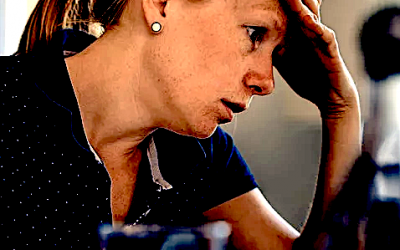The stages of change are a model of the steps people go through when achieving transformation.
The man that is credited with creating this model and each stepping stone along the way is Dr James Prochaska. Watching the video below will give you a better idea as to where you might be in your own personal transformation.
James Prochaska lost his father when he was a little boy. After that, he devoted his life to finding out the steps that people go through to make personal transformation a possibility. The theoretical stages of change model is based not on abstract theories but on personal observations of how people went about modifying problem behaviors
The six stages of the model are:
Precontemplation
Contemplation
Determination
Action
Maintenance
Termination
Precontemplation:
Individuals in the precontemplation stage of change are not thinking about changing their behavior. They may not see it as a problem, or they think that others who point out the problem are exaggerating.
There are many reasons to be in precontemplation, and Dr. DiClemente has referred to them as “the Four Rs” —reluctance, rebellion, resignation and rationalization:
Reluctant pre-contemplators are those who through lack of knowledge or inertia do not want to consider change. The impact of the problem has not become fully conscious.
Rebellious pre-contemplators have a heavy investment in drinking and in making their own decisions. They are resistant to being told what to do.
Resigned pre-contemplators have given up hope about the possibility of change and seem overwhelmed by the problem. Many have made many attempts to quit or control their drinking.
Rationalizing pre-contemplators have all the answers; they have plenty of reasons why drinking is not a problem, or why drinking is a problem for others but not for them.
Contemplation:
Individuals in this stage of change are willing to consider the possibility that they have a problem, and the possibility offers hope for change. However, people who are contemplating change are often highly ambivalent. They are on the fence. Contemplation is not a commitment, not a decision to change. People at this stage are often quite interested in learning about treatment. They know their problems, and they often have a mental list of all the reasons it is bad for them. But even with all these negatives, they still cannot make a decision to change.
In the contemplation stage, often with the help of a professional, people make a risk-reward analysis. They consider the pros and cons of their behaviour, and the pros and cons of change. They think about the previous attempts they have made and what has caused failure in the past.
Preparation:
At this stage, they have decided to make a change and are preparing for what's necessary. All the weighing of pros and cons, all the risk-reward analysis, finally tips the balance in favour of change. Not all ambivalence has been resolved, but ambivalence no longer represents an insurmountable barrier to change. Most individuals in this stage will make a serious attempt to stop problem behaviours in the near future. Individuals in this stage appear to be ready and committed to action.
What Can Hold You Back: Underestimating your need to prepare, and skipping straight to the action phase without adequate skills, knowledge or confidence. Being afraid to ask for or acknowledge that you need help. Not knowing where to turn for information and support.
What Moves You Forward: Taking initial steps, such as doing research, acquiring equipment, or engaging a coach or mentor. Establishing a start date on the calendar. Telling friends and family about your plan to change. Building excitement and confidence by accomplishing preparatory actions.
Action
This is about engaging in the healthy behaviours. An important bit of info with this step is that people might still occasionally have the problem behaviour but this is part of the progress. Action steps sometimes look like stumbling forward but it is still stepping in the right direction.
Maintenance
The maintenance stage is exactly as it suggests. This is about staying on the path for 6 months or so while building up the habits of more healthy behaviours.
What Can Hold You Back: Expecting tangible results too quickly. Resistance to change. Fear of failure, feeling inept. Slipping into old behaviors out of stress or habit. Competing commitments. Lacking social support. Insisting on perfection rather than progress.
What Moves You Forward: Developing good support systems. Prioritizing key activities. Focusing on action, not just outcomes. Addressing and overcoming obstacles as they come up. Celebrating small successes. Treating setbacks and challenges as opportunities for self-discovery. Evolving your goals.
Termination is when the problem behaviour has stopped for more than six months. It is at this point where a person may look at the problem behaviours of the past and wonder 'What was I thinking?'
If you are in the United States and looking for inpatient treatment for mental or behavioral health issues and have private PPO insurance and have behavioral health issues such as:
Depression,
Anxiety,
PTSD,
OCD,
Bipolar Disorder,
Schizophrenia,
Bulimia,
Anorexia,
Addiction.
call 1-844-947-0186
For addiction disorders, please visit for additional resources: https://www.nimh.nih.gov/health/topics/index.shtml
Everything You Need to About Short Term Memory But Forgot to Ask
Short-term memory has several...
Trading Psychology and How to Improve Yours
Trading psychology is a...
The Evolutionary and Psychological Challenges of Stock Trading
Stock trading is a complex...
How the Oura Ring Revolutionizes Sleep Tracking Compared to Other Fitness Trackers
In the ever-evolving world of...
Why You Should Go On A Meditation Retreat
Finding moments of true peace...
100 Best Audiobooks on Behavioral Economics, Psychology, Meditation, Self-improvement
100 top non-fiction audiobooks...
Top 22 Best Audiobooks Focused on Mental Health and Self-improvement
With the huge selection of...
“The Art of Stealth: How Viet Cong Sappers Cultivated a Mindset of Invisibility”
A Viet Cong sapper was a...
How PTSD Was Cured Four Times in 5 Hours
This case study shows how a...
























Trackbacks/Pingbacks